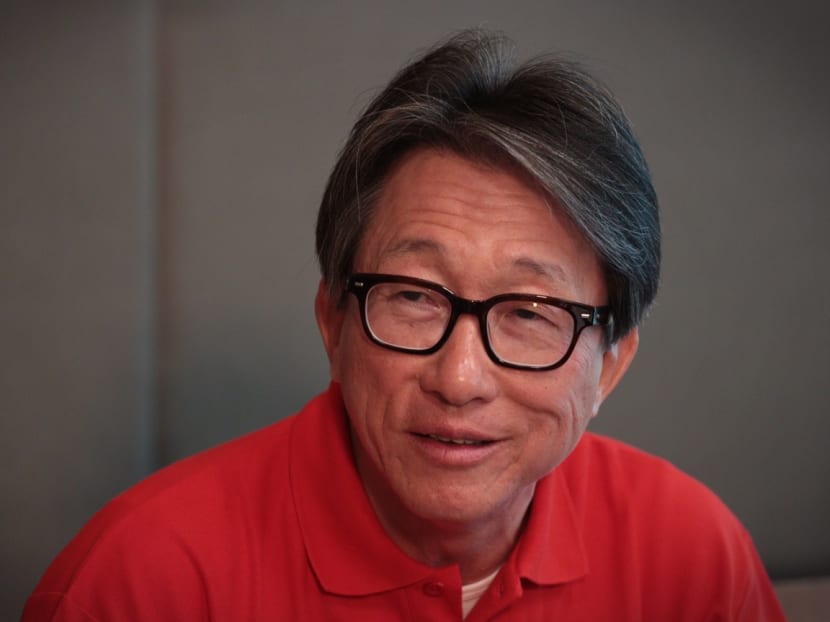Swee Say warns of urgent need to build skills
SINGAPORE — Workers need to pick up skills for the future and businesses need to transform existing jobs at a quicker pace to ward off an increase in unemployment, said Mr Lim Swee Say today (April 27), in his final May Day message as labour chief.
SINGAPORE — Workers need to pick up skills for the future and businesses need to transform existing jobs at a quicker pace to ward off an increase in unemployment, said Mr Lim Swee Say today (April 27), in his final May Day message as labour chief.
In an interview with the media before he dons the hat of Manpower Minister next Monday, Mr Lim warned that if Singapore does not move quickly enough on these two fronts, dire employment outcomes could hit Singapore.
There could be a rise in unemployment due to job shortages, structural unemployment due to skills shortages and under-employment due to a mismatch between jobs and skills of the future, said the secretary-general of the National Trades Union Congress (NTUC) secretary-general for the last 8½ years.
“We could then regress and become just a normal country with an ordinary economy and ordinary workforce. This will be painful. We do not want this kind of future for ourselves, and definitely not for our children,” Mr Lim said.
With the world changing at a much faster pace, Singapore’s best bet is to venture into the future ahead of others, he added, citing the adage that “the early bird catches the worm”.
On the manufacturing front, this means turning robots into co-workers in production; on the services front, this means turning customers into partners in service creation, he said.
Meeting reporters for two hours today, Mr Lim recounted a career path that led to him joining the the labour movement in 1996 and said he has had no major disappointments in his time in NTUC.
This is because there was always a platform for unionists to voice concerns, as well as Singapore’s unique brand of tripartism, he said. “Ten times out of ten, we don’t have disagreement over the ‘why’ — why must we do more to help low-wage workers (and for) mature workers, to extend re-employment age?”
Instead the tripartite partners spent their time arriving at solutions all were comfortable with.
While with the Economic Development Board in the early 1990s, Mr Lim said he got to interact with the late founding Prime Minister Lee Kuan Yew and internalised that economic development must be a means to social progress. Early in his stint with the NTUC, a union leader also told him that statistics such as per-capita-income mattered less to workers than the jobs and salaries they would have.
These lessons hit home during the 1997 Asian financial crisis. Then the executive secretary of the Chemical Industries Employees’ Union and United Workers of Electronic and Electrical Industries, Mr Lim saw workers from these sectors retrenched and deemed unskilled despite having spent over a decade at their jobs.
The experience made Mr Lim realise the need for skills certification, with absentee payrolls to help employers defray the cost of sending staff for training. Today, both skills certification and absentee payrolls are the norm, and job-matching is available at the Devan Nair Institute for Employment and Employability.
The way overseas union leaders viewed Singapore’s labour movement has also changed over the years, said Mr Lim.
In the late 1990s, he could sense their scepticism about unions here not being confrontational enough. To a foreign unionist who remarked that workers here were not allowed to go on strike, Mr Lim made the distinction between not being allowed to go on strike, and not having the need to go on strike.
Some in the International Labour Organisation were also won over, after they saw how tripartite programmes helped in the rebound of Singapore’s quarterly gross domestic product growth after the 2009 downturn, said Mr Lim.
Asked about his successor Mr Chan Chun Sing assuming the top post after only a brief stint in NTUC — he became deputy secretary-general in January — Mr Lim said Mr Chan was the right person for the job.
Whether a labour chief is groomed from within the labour movement is not as critical as whether he has a heart to serve workers, to be an effective link to the Government, and to be able to take the labour movement into the future, he said.
Mr Chan fits the bill, having engaged the ground well since January, he said. “He has good standing in the Government and, most importantly, he’s going to become a core member of our next generation of leaders,” he added.







